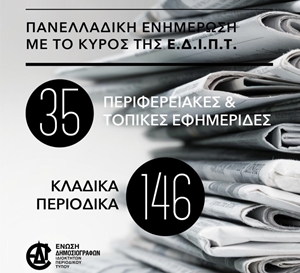- The resources will come from the Minerva 2 operation that the bank is implementing with the EIB Group.
- The operation is being backed by the European Fund for Strategic Investments (EFSI), the main pillar of the Investment Plan for Europe.
The new operation being undertaken by BNL BNP Paribas and the EIB Group, which comprises the European Investment Bank (EIB) and the European Investment Fund (EIF), focuses on the real economy and is aimed at small and medium-sized enterprises (with fewer than 250 employees), which will represent at least 50%, and mid-caps (companies with fewer than 3 000 employees). The operation is being backed by the European Fund for Strategic Investments (EFSI), the main pillar of the Investment Plan for Europe.
The operation is named Minerva 2 and is technically a synthetic securitisation (with no asset assignment) of a portfolio of the bank’s performing loans. The EIF has issued a guarantee for a tranche worth approximately €94 million, with an EIB counter-guarantee, which will enable BNL to provide new subsidised loans worth up to €470 million to Italian companies dealing with the impact of the pandemic on the economy and the business sector during this critical stage of national recovery.
This is the fourth operation between the EIB and the BNP Paribas Group, two of which have been undertaken with the lead bank BNP and two with BNL. A total guarantee of €402 million will enable companies to receive new loans worth some €2 billion.
“This deal with BNL BNP Paribas will provide new subsidised financing for small and medium-sized enterprises, the driving force behind the Italian economy. Last year, the EIB Group assisted with the liquidity requirements of more than 47 000 Italian companies with €6.86 billion,” said EIB Vice-President Gelsomina Vigliotti.
EIF Chief Executive Alain Godard added: “Italy is one of the European countries with the largest number of small and medium-sized enterprises, and giving them access to financing is a key element to encouraging inclusive economic recovery. Thanks to this agreement, the EIB Group and BNL BNP Paribas will be able to provide €470 million to support the investment requirements of Italian SMEs.”
Commissioner for the Economy, Paolo Gentiloni, said: “I welcome this financing support for small and medium-sized businesses in Italy, backed by the Investment Plan for Europe and based on guarantees from the EIB and the EIF. The financing made available through this operation will allow businesses to continue their path to economic recovery after the pandemic crisis, creating and sustaining jobs in the process.”
Elena Goitini, Chief Executive Officer of BNL and Head of the BNP Paribas Group in Italy: "BNL BNP Paribas confirms its proximity to individuals and businesses throughout Italy thanks to a new organisational and business model that is even more transversal and specialised, with a view to meeting the expectations and requirements, in particular of entrepreneurs, who need a solid, experienced and reliable partner to accompany and support them. We also seek and create the best possible synergies with highly reputable operators, such as the EIB Group, because we understand the need to work together to help the country recover and start growing, especially at this critical social and economic juncture in the wake of the pandemic.”
The support is aimed at the industrial, agricultural, tourism and service sectors and is intended for investments in tangible and intangible assets made within a three-year horizon, and in particular acquisitions, restructuring, extensions of buildings used for the productive activity of the company, research and innovation, and working capital requirements related to the company’s operating cycle.
The Minerva 2 operation sees BNL BNP Paribas and the EIB Group build on the positive experience of working together on Minerva 1 in 2018, with the help of the EFSI to boost growth and employment throughout Europe.
Minerva 2 is one of the first synthetic operations to be designated STS (simple, transparent and standardised), which is a regulatory framework for securitisations recently included in EU law that is intended to guarantee the suitability of these products, differentiating them from more complex and higher risk financial instruments, while ensuring that the lending bank makes a profit.













